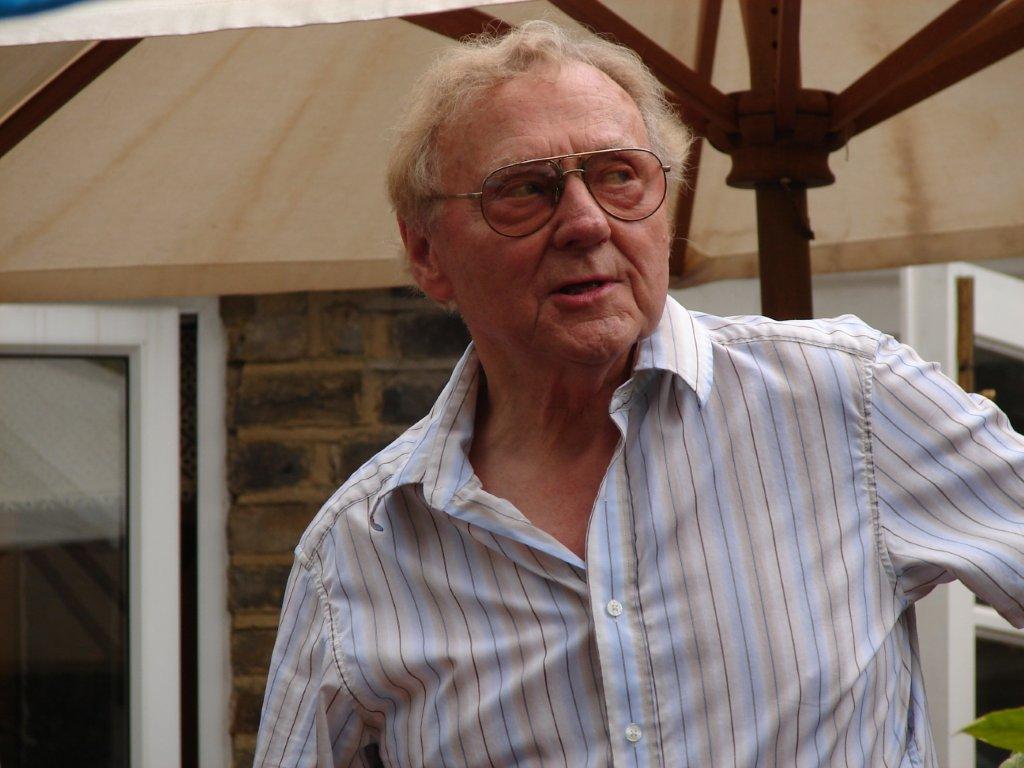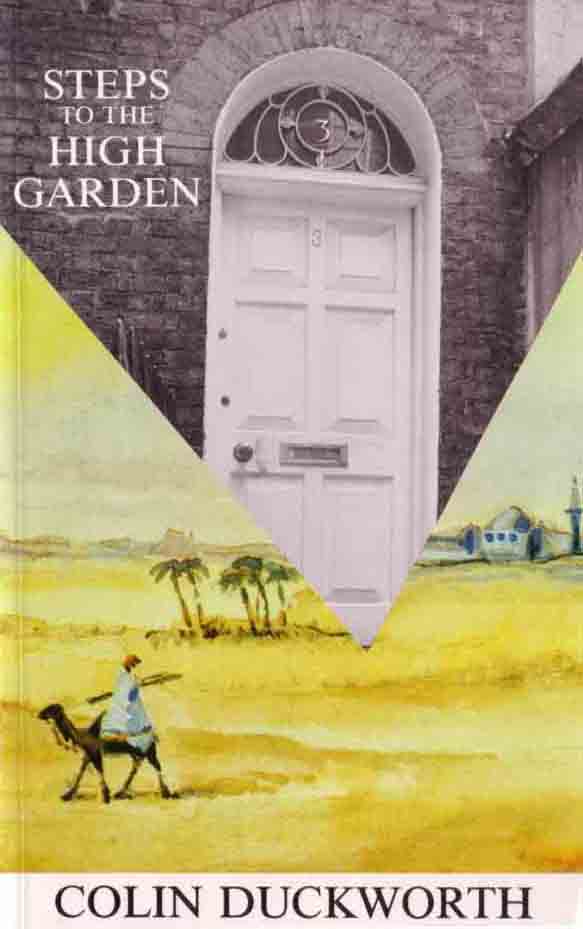wordsout
Eulogies <
6
of 7
>
Homage au Professor
<
8
of 8

Waiting for the professor
for Colin Duckworth, with apologies to Samuel Beckett
Two characters (who could be Didi and Gogo - perhaps they are Dada and Gigi) enter. The scene is the entrance to heaven, which should be clear from the opening exchanges. The atmosphere is calm: their lines are not hurried, and there is usually a slight pause before the delivery of each.
1. Here we are then.
2. There's a turn-up for you.
1. Do you not recognize the place?
2. I hear harps.
1. I thought that was a bit predictable.
2. So he does exist after all.
1.
Yes. And everybody comes. Nobody goes.
It's . . . surprising.
2. Are we going in?
1. No we can't, we're waiting.
2. Who for, Mr Godot?
1.
No, I think we've exhausted his possibilities.
Somebody else. The
Professor.
2. Do we know him?
1. He used to teach us.
2. Did he beat us?
1.
No. But if you didn't have your essay there was
hell to pay.
2. Are you sure he'll come today?
1. Oh yes, he'll come today.
2. What will he do when he gets here?
1. He'll write a novel about it.
2. Or he'll take someone else's, and change it.
1. Adapt it.
2. Translate it.
1. Transladapt it.
2. A bilingual transladaptation!
1. With most of the characters taken out to reduce the production costs.
2. Will he put us in it?
1.
That would depend on getting copyright clearance
from the estate. It
may take
some time.
2. Was he a believer?
1.
He was, though he didn't care much for the
theological arguments.
2.
Then he was in agreement with God about
something.
1.
He was a bishop once. On Neighbours.
Perhaps
that counts.
2.
And he played a judge on the same programme.
And then a homeless
beggar!
1.
He seems to have enacted the complete Incarnation
in a single soap
opera.
2. What was his name?
1. You don't remember?
2. qua qua qua qua . . . Quackworth?
1. (patiently) Duckworth.
2. I remember. You're sure he'll come today?
1.
He has a few things to do. Some people to say
goodbye to. They mattered
to him.
2. As much as his books and papers?
1. Much more than that.
2. What happens when he gets here?
1. There's
a concert for his benefit. Claude Debussy
has
written a sequel to l'après-midi
d'un faune.
2.
He'll enjoy that. He won't make a fuss, but he'll
be smiling inside.
1. I think he's coming now. Up those Steps.
They look into the middle distance in a suitable direction.
2. I don't remember what this place is called.
1.
Many things. He called it the
2. What a lot of people are here.
1. Irish writers.
2. French revolutionary spies.
1. Even Richard the Third.
2. That'll please him.
1. Both thieves, and all four evangelists. Though as it turns out there were actually seven of them.
2. Who are those making all that noise?
1. That'll be the members of his club.
2. Perfectly absurd.
1. Absurdly perfect.
2. And his family too?
1. All in good time.
2. He hoped it would be like that.
1. He thought it would be like that.
2.
I suppose it's what he was trying to tell us in all
those books.
1.
Yes. Everybody comes. Nobody goes. It's
wonderful.
They go in.

This
was read by Michael
Bula and Lawrie Groom at my father-in-law
Colin's funeral at St Carthage's Church in
I wanted to write something that Colin himself would have enjoyed and laughed at had I been able to read it to him.
Colin was an
expert on (among many other things) the work of
Samuel Beckett (whom he knew personally and whose trust he enjoyed) and
other
"absurdist" twentieth century writers. He directed productions of Waiting
for Godot and many other Beckett plays, and is credited
elsewhere for
having elicited from the notoriously unforthcoming Beckett the
confirmation
that "Godot" was not a pseudonym for "God". Godot has
intersected repeatedly with my life since its first ever performance
coincidentally took place in
Everybody comes.../Did he beat us?/qua qua qua/thieves and evangelists Taken or adapted from well known passages in Godot.
If you haven't got your essay there'll be hell to pay A comment made by one of Colin's students to his future wife Mary, at that time Colin's girlfriend, as they sat outside his study in Cambridge. The speaker incorrectly assumed Mary was another student.
Transladaptation is a word coined by Colin for a play in one language based on a novel in another. He created several of these, performed to full houses at the Stork Theatre in Melbourne
copyright clearance Beckett (and his estate after him) was well-known for dis-approving the slightest modifications to his text or stage directions.
Neighbours In his intermittent acting career Colin really did play these three different roles in the Australian soap at different times. He was also the Hungarian vet "Tibor" who made occasional appearances in the Aussie cop show Blue Heelers.
l'après-midi d'un faune Colin loved much late 19th and early 20th century music, and this was his favourite piece. He could sing or whistle the entire melody. Colin played an important part in introducing my son Joel, now becoming established as a composer in his own right, to contemporary classical music.
Steps to the High Garden was the first of several novels Colin wrote after his early retirement as Professor of French at the University of Melbourne. It would make a superb feature film, but I think Colin's own preoccupation with the pursuit of truth and knowledge and his impatience with the triviaility and gracelessness of much contemporary popular culture probably meant he was never going to write a truly "popular" novel.
French revolutionary spies The subject of Colin's study of the Comte d'Antraigues.
Richard the Third Colin was for some years president of the Richard III Society in Melbourne.
his club The Savage Club, of which Colin was a member in both London and Melbourne.
© Godfrey Rust 2012, godfrey@wordsout.co.uk. See here for permissions.